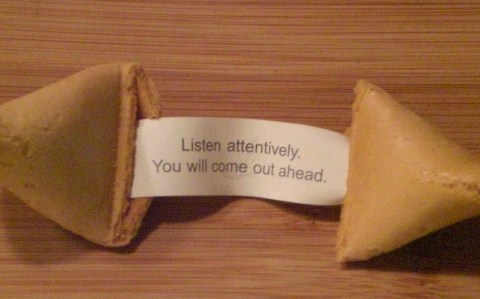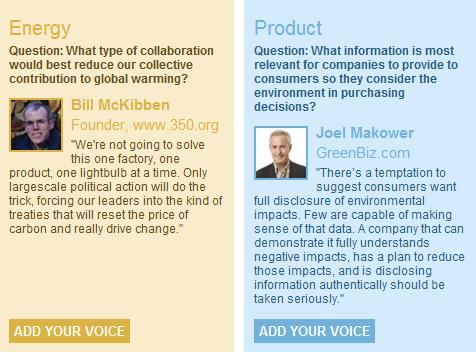The Value of Listening
/ I wrote a post last week on The Changebase that seems to have hit home for some readers.
I wrote a post last week on The Changebase that seems to have hit home for some readers.
It was about the value of storytelling in CSR reports as a way for companies to not only connect with various audiences but also to bring their sustainability stories to life.
Obviously, I’m a big believer in storytelling – otherwise I wouldn’t have written that post! Yet the more I thought about it, the more I realized that I had missed one crucial element: Listening.
Sure, storytelling is a valuable way for a company to get its CSR message across. But even this is still a very one-sided way of communicating.
With the increase in consumers wanting and expecting to have a more immediate and impactful voice on business today (especially via social media channels), it seems that the true CSR winners are those companies that not only tell stories, but that allow their stakeholders to shape the story that gets told.
Stakeholder engagement is an incredibly complex topic, and to be honest, I’m still learning about best practices in this area. If you can imagine that each business faces unique industry- and firm-level opportunities and threats, then it follows that each business must also consider and engage with a unique set of supporters, critics and third-party groups. Not only are there a lot of different voices to consider, but there's no one-size-fits-all model to follow.
Some companies (often the ones that have been burned by crisis or stakeholder anger in the past) have invested a lot of money in better managing these external and internal audiences. Nike and Gap, for example, are two companies I’ve heard (at least anecdotally) that have full departments dedicated to stakeholder engagement. Which makes sense since, in my opinion, it certainly sounds like a full-time job.
Timberland is another company that’s chosen to listen, not just talk. In its Voices of Challenge project, Timberland has created a platform for stakeholders to share ideas, discuss concerns, and create collaborative opportunities for the company.
We’ll be incorporating your feedback as we develop Timberland’s CSR strategy. We hope you’ll join the conversation by posing questions and comments and providing suggestions for how to approach opportunities and challenges. Let your voice be heard – join the conversation by clicking on the buttons below.
And here's an example of the type of contributions Timberland is getting:
By creating a two-way dialogue in which the company has the opportunity to hear directly from its stakeholders, Timberland wins a couple of big ways:
- It earns additional credibility and loyalty from consumers, suppliers, NGOs and others who appreciate corporate transparency and authenticity, and who want to have a voice in Timberland’s business decisions
- It solidifies the brand as forward-thinking, inclusive and progressive – all adjectives, by the way, that differentiate Timberland from its competitors and inevitably will help drive sales
- It provides Timberland with additional raw data to understand who its stakeholder audiences are, what matters to them, and by extension, what should matter to Timberland.
Ultimately, when companies listen, they learn.
It’s the kind of no-brainer statement that any market researcher would agree with, yet when it comes to CSR, it’s not always so easy to do.
Companies often worry that by opening themselves up to a conversation with stakeholders, all they may get in return is criticism, anger and frustration. And sometimes, that’s exactly what happens.
Yet this fear of being criticized should actually be outweighed by the possibility that true idea sharing can lead to innovations and developments that the company could not have conceived of on its own.
Funny enough, one of my research projects for this semester is to work with a marketing and communications firm to dive deeper into the opportunities that exist for companies to drive innovation, improvement and ultimately revenue by engaging their stakeholders. When you distill it down to our most basic research question, it’s this:
Can listening be a company’s competitive advantage?
Time will tell, but my initial hunch is that it can.
In the meantime, what’s your company doing to listen – I mean, really listen – to what your consumers, customers, suppliers, employees, shareholders, and community members have to say? What ideas and insights could you gain from them that will make your business more effective, strategic and successful going forward?


